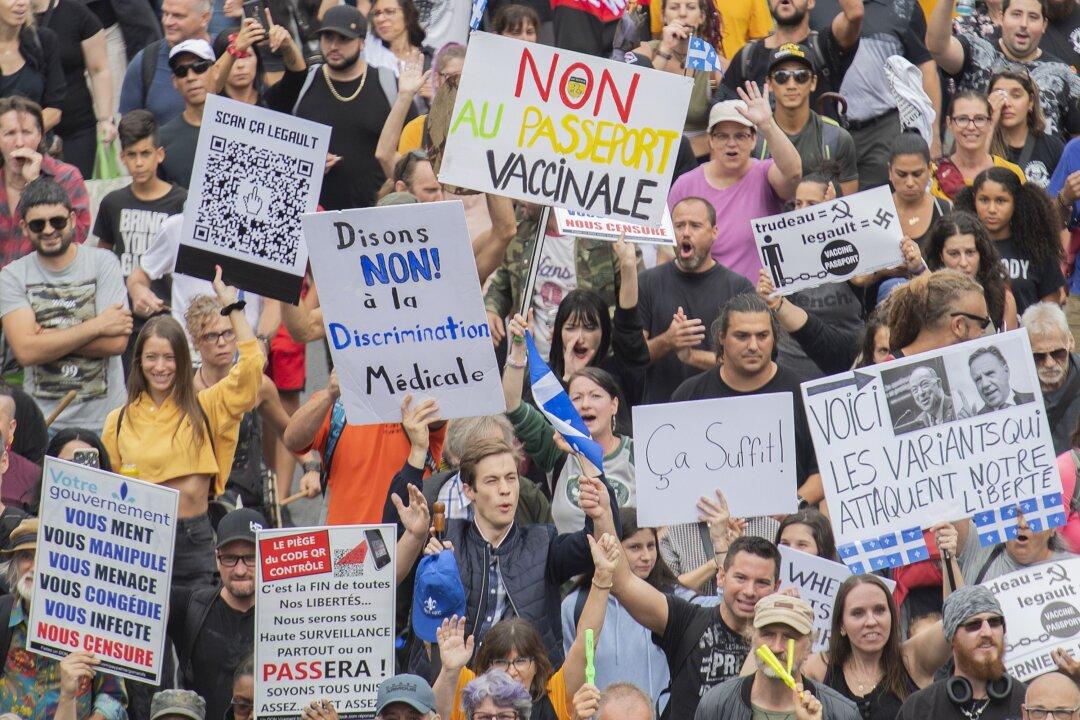New laws in Alberta and Quebec that bar COVID-19-related protests from outside many public institutions raise concerns about curtailment of free expression, with one civil liberties lawyer describing the clamp-down as “political in nature.”
In Quebec, public security minister Geneviève Guilbault tabled Bill 105 on Sept. 23 to ban demonstrations “in connection with health measures … vaccination … or any other recommendation issued by public health authorities” within 50 metres of daycares, schools, publicly funded colleges, and all health and social service institutions, including COVID-19 screening and vaccination clinics, whether stationary or mobile.





